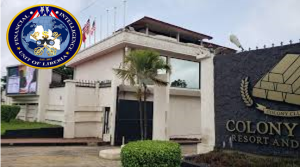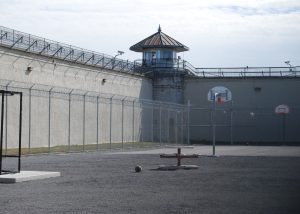CBL Blames Legislature for Liquidity Crunch
— Says legislature’s action to deny CBL request to print L$7 billion is the cause
Amid difficulties in receiving cash from commercial banks in Liberia due to shortage, the Central Bank of Liberia (CBL) has shifted the blame on the Legislature for the country’s current liquidity crunch, which has forced banks to ration daily cash-withdrawals.
In a press release, the CBL said the current financial crisis could have been avoided if the Liberian Legislature had approved their request to print L$7 billion.
The denial of that request, the CBL said, forced them to settle for L$4 billion which is accordingly inadequate to replace the current amount of mutilated banknotes and, at the same time, meet the liquidity demand in the banking system.
“In its effort to preempt this seasonal pressure, the CBL in 2019 forecast L$7.5 billion based on its analysis but was authorized to print only L$4.0 billion. This amount which was brought into the country in July this year, was inadequate to replace the current amount of mutilated banknotes and, at the same time, meet the liquidity demand in the banking system,” the CBL said in their press release.
However, the CBL noted that in the midst of these constraints; they are strategically working and infusing the L$4.0 billion “through the commercial banks with substantial amounts already infused into circulation.
The bank added that the pressure on the Liberian dollar this year is unusual and, as such, it can be attributed to the increased demand for “Liberian dollars over time, which has been exacerbated by COVID-19.”
Meanwhile, the CBL response comes just a day after the US government alerts its citizens and other foreign nationals that Liberia is gripping with acute shortages of its own currency and the US dollar; as such, they “they should travel with cash that will sustain them for their time in the country.”
“Travelers should be aware that it may be difficult to obtain cash from banks in Liberia and should plan accordingly. Liberia’s banking sector has experienced a growing shortage of cash – both U.S. and Liberian dollars – over the last several months. As a consequence, it is difficult to obtain adequate cash supplies from ATMs and banks,” the Embassy said.
“There are no ATM facilities for public use at the U.S. Embassy. Amounts of U.S. dollars over $10,000 must be reported upon entry to Liberia. Travelers may exit with no more than $7,500 U.S. dollars,” says the US Embassy Alert.”
The US government warning and the CBL statement comes as banks continue to experience a growing horde of people forming in queues just to get cash, which has been in short supply. Both the Liberian and US Dollars have been in short supply for months, but the squeeze has intensified in the last few weeks forcing banks to turn away customers as they simply don’t have enough cash in their vaults due to limited cash received from the CBL.
Despite the positive African Development Bank outlook, the current liquidity crunch, which reminisces the same problem in 2018, means Liberians are in for a very rough incoming new year as the situation might persist for much longer than expected.
According to the AFDB, the Liberian economy was going to recovery by 1.6% in 2020, underpinned by mining, forestry, and agriculture with improvement in Macroeconomic stability due to the implementation of an IMF-supported program improving fiscal and monetary policies, which “tackles structural rigidities to create a favorable environment for private investment.”
However, such improvement might likely not be realized as the county is not just struggling to ensure cash flow but also finding it difficult to raise enough revenue to pay its wage bills and local debts. Currently, public sector workers have not taken pay for about three months and even if they were taking pay, they might not easily get hold of their salaries to pay bills and take care of needs.
With the situation increasingly worsening by the day, it has frustrated and turned away Liberians in their droves with no hope of making the festive Christmas season merrier. Breadwinners are competing with the demands of Christmas shopping for their kids as well as paying school fees for the next academic year.
And as the situation is increasingly worsening by the day, some observers of this trend have expressed fear that the anger of depositors could blow over sooner than later as public confidence in the banking sector continues to deteriorate.
Thirst, anger and disappointment were visible on the faces of most bank customers on Tuesday, December 22, while others passed the long hours of waiting by playing games on their mobile phones, or engaging into political or social discussions just to help alleviate the stress of depositing or withdrawing their monies from the commercial banks.
The clients also vented their anger as they piled long queues in and around the buildings hosting commercial banks, resembling displaced persons standing in queue to receive rations.
But the CBL said they are working with all key stakeholders, both in the private and public sectors, to mitigate the liquidity pressure. Specifically, the Bank said it is currently engaging with commercial banks and mobile money operators to promote the use of mobile money and other electronic forms of payment in addition to withdrawal of cash.
“The CBL wants to reassure the public that it is doing everything necessary to ensure the availability of both US and Liberian dollar liquidity for the festive season. The Bank has also put into place a Liquidity Monitoring Framework, including the establishment of an Internal Liquidity Management Team to respond to the prevailing liquidity challenge.”
“In order for the Bank to be able to exercise full monetary authority, it will need full autonomy over the printing of currency like most other central banks across the world. The recent amendment of the CBL Act to give a three-year latitude to the Bank to print without frequent Legislative approvals is a positive step in the right direction,” the release added.
The liquidity situation, which the CBL and the government are yet to find a solution to, has resulted in a blame game as senior government officials, including House Speaker Bhofal Chambers, blame business people for hoarding the Liberian banknotes and keeping them at home to cause the shortage that is adversely affecting the economy.
But the CBL statement is a winner for businesses who have been blamed for the government’s shortcomings to solve this problem since 2018. Meanwhile, Speaker Chambers and several other lawmakers have repeatedly given the greenlight to the CBL to print local currency while standing by and doing little or nothing to ensure that the bank solves the problem, which has now become a repeated occurrence.







